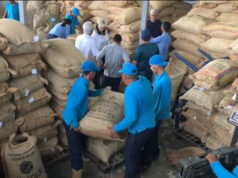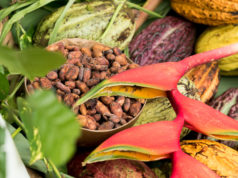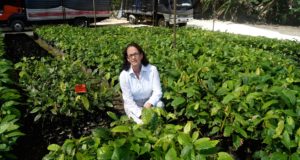Jorge Redmond does not go unnoticed, his talent, combined with his perseverance and faith in Venezuela, makes him a public and respected figure. The president of Chocolates El Rey is an example of progress and common sense. His father used to define him, as an “Optimistico” chocolate lover who likes doing things right.
By Liliana Elias
Shaking a cup of Argentinian red wine “Las Moras” baptised the moment. The faint lights in a corner of the restaurant Leal, in Caracas, accentuated the warmth of the meeting. The interviewee, a man whose reputation precedes him, with prudence in proportion to his height, observant and discreet, with a charming sense of humour when you know to sound him out, a cocoa and chocolate man in Venezuela, Jorge Redmond, the visionary behind Chocolates El Rey.
For Venezuelans is very usual to come across with a package of El Rey on a shelf. We are already familiar with the term “Cacao 70%”, and even that “Carenero Superior”. The tablets with a golden cursive letters logo has become an obligatory for those who leave to other geographies, and hope to show one of the best feature of a country recognised worldwide for its excellent cocoa. Today we will discover the human perspective of a brand that conveys happiness, the concepts, principles and criteria of the promoter of an industry of flavours and intoxicating aromas.

El Rey since 1929
The chocolate royalty began over 86 years ago in Caracas as a part of the initiative of two entrepreneurs: José Rafael Zozaya and his father in-law, Carmelo Tuozzo, who sold 45% of the company’s assets to Jorge Redmond, and then the remaining ones a year later. His vision and business sense were sufficient to give El Rey a change of direction towards an unstoppable success, the awakening of a titan of Venezuelan cocoa which demolishes the worldwide competition and seduces the most demanding palates. The Icoa and San Joaquin tablets are a perfect example. El Rey crowned to stay.
– Even though Venezuelan cocoa is highly famous worldwide thanks to its excellent flavour and aroma, the industry is not exactly what is expected. Why isn´t it so?
– I believe that Venezuela is a country with an enormous potential, but unfortunately, some political and a very low level of education in some sectors are factors that have influenced on the crisis. In Venezuela there is also what Moises Nahím calls “a culture of condominium” that makes us care about what happens inside our doors, without realizing that it is also essential to care about our neighbour. We must look out for the whole surrounding, thus, while that does not change it is difficult to make out another scenario.
– Would you add this to the lack of link in the private sector?
– There are some individuals, especially in the exporting area, working isolated without contributing to the industry, but in the vast majority there is consensus, especially in the niche market and producers. I would say that 80 % of producers agree with what we are doing.
Are there difficulties? Yes, but there has been much union. This country is driven by the private sector. Some small companies have certain weaknesses because they do not make alliances. They make their own effort almost alone, and their intention to move forward has to be praised, but they ought to get more involved in their community, ought to visit the plantations, ought to talk with the producer and meet the agronomists. For instance, our engineer Francisco Betancourt’s attitude is emblematic because he helps producers, gaining their affection and respect and also high credibility among them and the company, because he goes where he is needed, he stays with people who need him, making a difference.
– How has it been the work culture of the Venezuelan producer?
– There still remains much to be done. Venezuela tends to have too many chiefs, not enough Indians, but this must change. It could change.
– What is your opinion of the political position before the cocoa matter?
– Venezuela is in danger of losing its place among the fine aroma cocoas since this is not being attended as expected. The current situation is due to badly conceived policies, and even lack of any policy. It is necessary to have a government to run the country properly. The existing loyalty to communist concept must be given up.
There has been very little political accessibility. Now, it could start to change since we have managed to get some attention from the government. We have already formed a kind of commission between an official entity and some private producers in order to stimulate a plan that allows a cocoa exports opening, which is one of our greatest dramas in cocoa industry.
Cocoa to awaken a country
For Redmond, the cocoa subject in Venezuela shows a very difficult situation because there is an impoverished agricultural sector with about 56 thousand hectares in production and about 17 thousand producers under the worst productivity range in the world, while countries such as Ecuador, Peru and Colombia, which were able to understand cocoa business, produce over 800 kilos per hectare.
– Would it be possible that Venezuela reaches those production and quality levels?
– Of course! We have to prove we can do the same here using Venezuelan technology, which by the way, is being used by other countries to achieve what we have not achieved yet. We have the know-how, the people and access to international markets, but that market is expecting that Venezuela responds.
The president of Chocolates El Rey cited one initiative that is boosting entrepreneurs and the whole sector at the moment, which is the Plan 30×5, expected to increase exports from 10 thousand ton to 30,000 ton per year within five years.
Ecuador, a rising cocoa power
While Venezuela celebrates and suffers the reputation of having the best cocoa in the world, at the same time, some countries like Ecuador have managed to tighten their belts and make the cocoa such a profitable product that allows them to obtain 6% of GDP out of this grain as delicious as profitable. “Ten years ago, Ecuador was producing 60 thousand ton per year, today they exceed 270 000 ton. It is a world cocoa player” Redmond says.
– You have had the opportunity to interact with Ecuadorian producers. What impressed you the most about them?
– What I have seen in Ecuador stunned me. I saw a farm of 500 hectares that has everything we need to have and do here. It produces two ton per hectare while we continue producing only 200 kilos per hectare. They handle a lot of technology and strive to make the food chain work as it is expected. We want to bring that here, but, it costs money and needs investing.
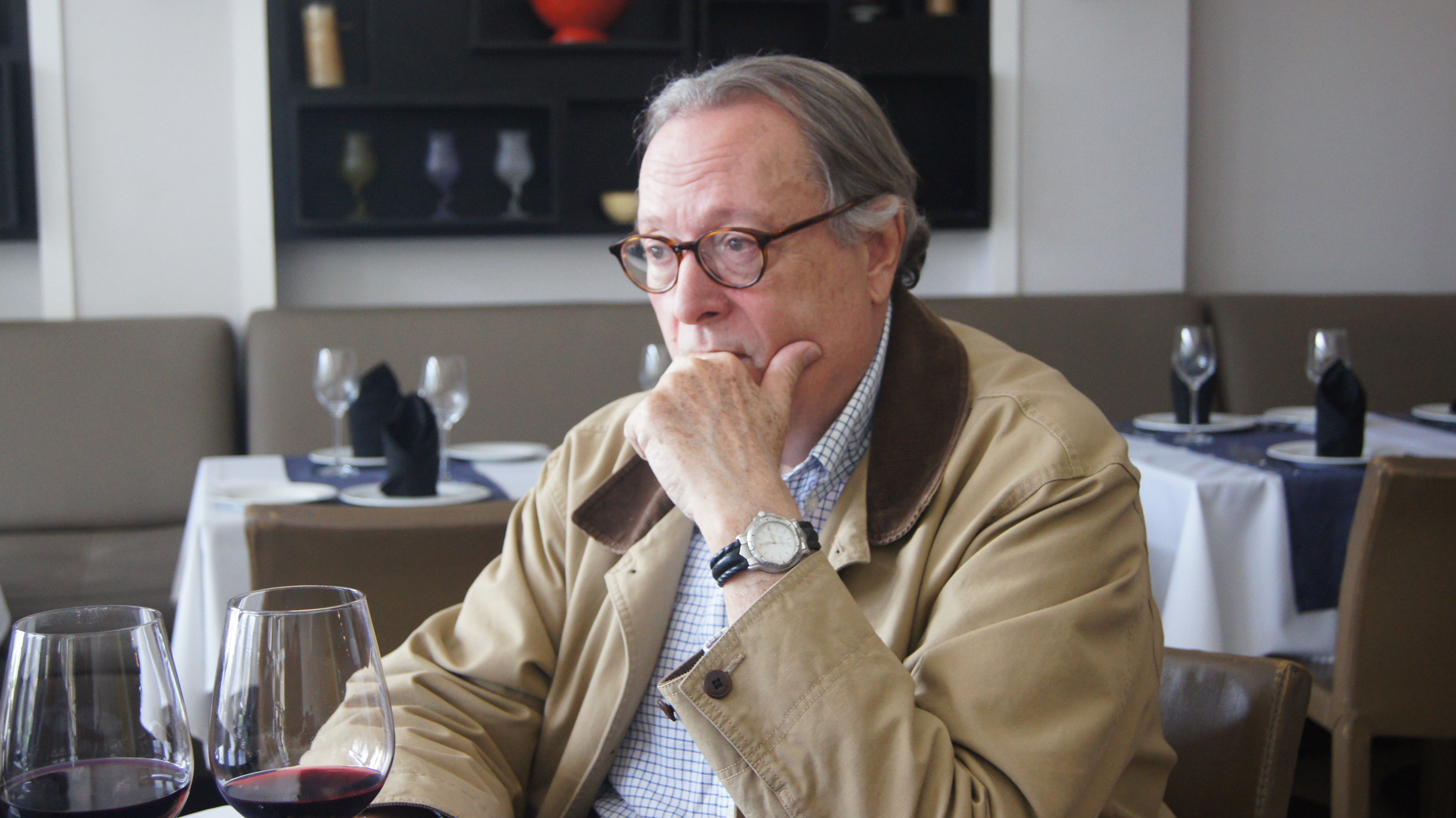
Optimistico above all
Optimistico is a term that does not exist in any Spanish dictionary (It’s a pun), although it is very familiar for Redmond, “It is for my father, who was an American and pronounced some words in his own way,” he says with evident nostalgia. That is a word play between “optimistic” and “mystical” which adjusts perfectly with this cocoa subject’s personality, a king of chocolate.
– When we talk about the Venezuela case the scenario is not very encouraging. But you believe in change.
– I believe we can. I think Venezuela can make the grade. We have everything to get it. Chocolates El Rey has far demonstrated how important will power is. It involves work, but who comes up with excuses, will hardly achieve something. Against all odds, El Rey was facing a difficult situation, then gave a change of direction and began to produce not only for the domestic market but also it started to exporting semi-finished and finished products to competing globally. That means making the food sector a work. Icoa tablet won for All Americas award, San Joaquin tablet won a bronze medal at the International Awards of Chocolates in New York, as well as in the London Global Competition where it also won. All those come from Venezuela, what shows that excellence is possible.
– Under what premises does El Rey try to spread that sense of excellence to its personal?
– That’s part of leadership that you must have in managing a business, we expect that who performs a good job, does it well at home. Recycling, for instance, is a good practice. People learn from others.
– Speaking of optimism and excellence, what do you praise for what is being done with cocoa in Venezuela?
– Soon we will have a lot to praise for. Short and medium term plans must be designed. It will require significant investment and the government will have to establish a state policy to boost the cocoa industry in Venezuela.
Rampant corruption
Venezuelan crisis is demarcated by a factor which, together with bureaucracy, condemns cocoa to alarming stagnation: corruption. Experts point out this and Redmond agrees with this statement.
– What have been the main obstacles into Venezuelan cocoa production?
– Corruption and bureaucracy. To move cocoa from a small town to another one must have a permit approved by the government and that means that one hast to pay someone in the National Guard to be able to obtain it. That is just one among a lot of other things.
Exportation, an entrepreneurs’ headache
Parallelisms are imposed in a country that before depending upon oil, it was ranked as the leading cocoa exporter in the world, and today is among the last ones, with a few 10 to 17 thousands ton per year.
– Why does the export issue represent a “sword of Damocles” for the producers?
– Due to bureaucracy that this government has imposed. For instance, 17 years ago, to export a container needed four steps. Now, one has to comply with 90 requirements among 19 ministries. The government assumes to be controlling, but that’s not true. They have a strong distrust in the private sector, even though it is the private sector which moves the economy of a country.
For instance, if someone places an order from Japan, it can take four months only to complete the paperwork. What sense does it make in terms of competitiveness to the country? None! Cocoa suffers the ravages of time spent waiting for export.

The human side
The interview continued at Edgar Leal’s time and recommendations when he approached to greet his friend. The camaraderie between both indicated respect and brotherhood. A delicious duck magré order by Redmond flooded the table with flavour and colour where one tender-loin with mustard sauce and a spectacular boneless pork legs, stuffed with bird mousse, were also part.
Between bites, the conversation turned to a more human course, and Redmond started to gradually reveal his quotidian life.
– What have you confronted from his trench to defend cocoa?
– To a sector of the country where no one cares about making things right, but while one shows that we can attain our goals as far as we work for it. That has much to do with showing that ideas are feasible, our idea is that Venezuela will become a different country when cocoa starts to work. That’s possible, the rest is work.
Table talk
– What is the cocoa you enjoy the most?
– That a matter of great discussion. I would not say there is one better that another. It depends on many factors, including the time you consume it. It is difficult to answer that.
– The best time to eat a chocolate?
– Well … I should not do it because I’m diabetic, (laughter), but I constantly taste it. There is no special time, when the body demands it, so that chocolate is a food of Gods is reflected in that enjoyment.
– What kind of music do you like?
– I really like classical music. I like almost all kind of music, except that electric rock, I do not enjoy it … I can dance a “Merenguito”, if I am forced to (laughter) …
– An unforgettable moment?
– There are moments of great pleasure and others of great sadness: April 12th was the worst. The moments of joy? My children’s birth and graduations and some trips we have done together.
– A spectacular place?
– The most spectacular one is that I have not seen yet.
– Jorge Redmond in three words:
– They are two … (laughter). I would like to think I’m a good citizen
– A virtue?
– I usually laugh a lot. I should not say the rest, not me. A virtue … This … I do not know. What a bad interviewee!
– Not at all. A defect?
– Being impatient.
– The value of friendship?
– Very important, friendship and family are very important, and many people do not value that.
– A film that has marked you?
– When I go to the movies or watch TV I do it for entertainment, not to thinking, I relax. Casablanca, for example, is a spectacular film, one enjoys it, and there is art there, a depth.
– What are you afraid of?
– To stupidity, irrationality. Especially in a country we don’t know where we stand. People make decisions without thinking and that’s terrible for society. But as I am Optimistico …
– What thing couldn’t you live without?
– You know what I have thought … Sometimes I think that the Ipad, but it is not true. One can always live without many things when one is put to test.
– Venezuela in an expression:
– Not one, Venezuela is wonderful with many problems to tackle. Venezuela is my home
And so, this meeting with an cocoa oak ended, an ingot of trust and work called Jorge Redmond, an optimist who devotes all his experience to a country that needs thriving people focused on getting ahead, in this case, doing their best for activating the sweetest industry of Venezuela: cocoa.
